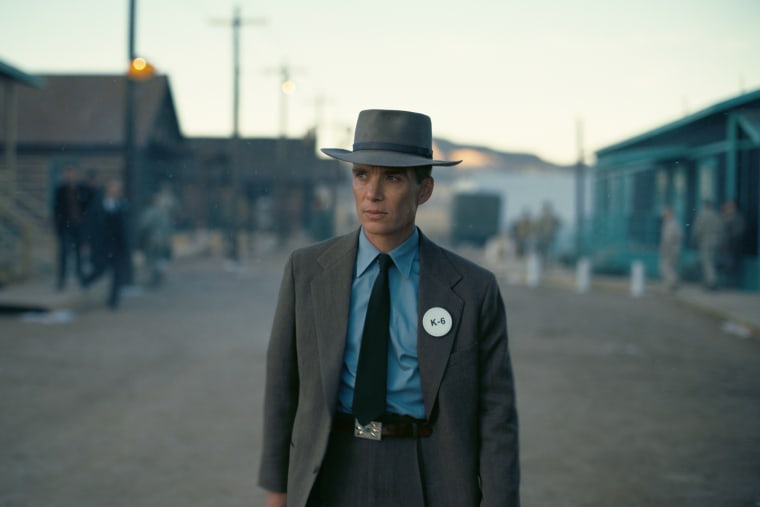In making “Oppenheimer,” writer and director Christopher Nolan said it became apparent that the moral quandaries posed by artificial intelligence mirrors those faced by Robert Oppenheimer, whose story about developing the atomic bomb is told in the movie premiering Friday in U.S. theaters.
As Oppenheimer developed the weapon in the early 1940s, the theoretical physicist faced backlash and uncertainty from the U.S. military and Congress, much like the tech industry is facing today in its race to make artificial intelligence more powerful, Nolan said in a recent interview with NBC News’ Chuck Todd.
“When I talk to the leading researchers in the field of AI right now, for example, they literally refer to this as their Oppenheimer moment,” Nolan said. “They’re looking to his story to say ‘OK, what are the responsibilities for scientists developing new technologies that may have unintended consequences?’”
Present-day theoretical physicist Carlo Rovelli, who joined Nolan in the interview with other experts, said he has thought about how Oppenheimer fits into the 21st century.
“The kind of questions it raises are not just about the ‘40s and about general issues about the morality of scientists,” Rovelli said. “They are burning questions today.”

As AI continues to rapidly develop, Oppenheimer’s ethical qualms about forgoing the scientific process in favor of domestic safety loom as experts warn of a possible national security threat if the so-called “weaponization of AI” takes hold and humans can no longer fully control autonomous weapons systems.
“The risk of an emergence of novel forms of weapons of mass destruction under a radically different, more sophisticated and pernicious, form has now become real,” Birgitta Dresp-Langley, a professor at the University of Strasbourg in France who specializes in philosophy, artificial intelligence and information, wrote in March in the journal Frontiers in Artificial Intelligence.
Other possible risks associated with AI include inequitable environmental costs, “stereotyping, denigration, increases in extremist ideology, and wrongful arrest,” according to a report written by a group of researchers in 2021.
Nolan said the increasingly intimate relationship between AI and weaponry exposes the need for corporate accountability. He said the thought of people producing or using the technology without truly understanding its implications is, “terrifying … because as AI systems go into the defense infrastructure, ultimately they’ll be in charge of nuclear weapons.”
When replicating the first detonation of a nuclear weapon, called the Trinity Test, Nolan worked to ensure it felt real, “dangerous… beautiful and terrifying in equal measure.”
He said he hoped people who watch “Oppenheimer” will be more aware of the dangers faced today and “leave the film with some unsettling questions, some troubling issues.”